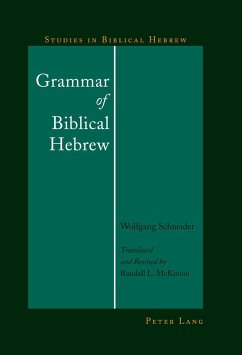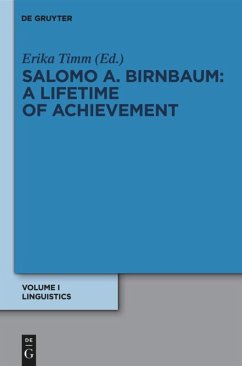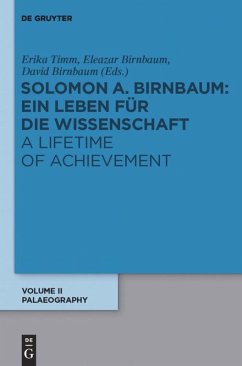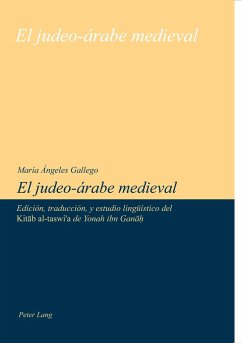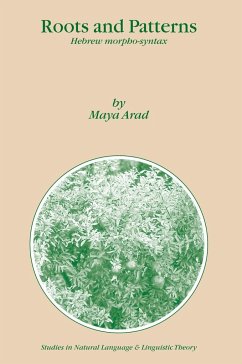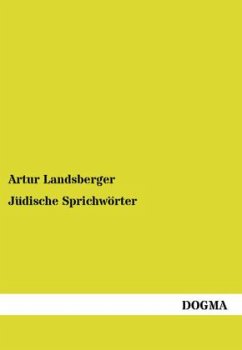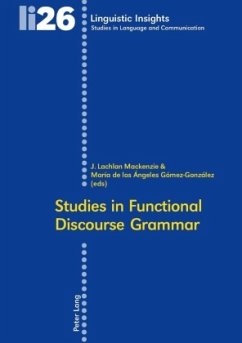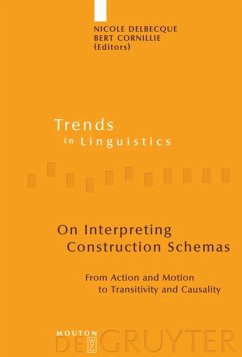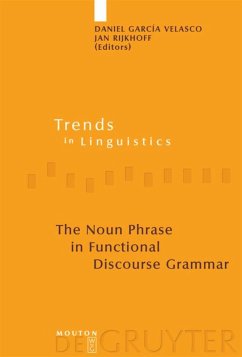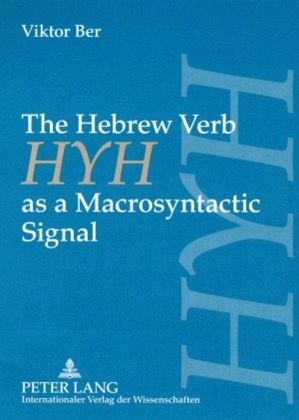
The Hebrew Verb 'HYH' as a Macrosyntactic Signal
The Case of 'wayhy' and the Infinitive with Prepositions 'Bet' and 'Kaf' in Narrative Texts
Versandkostenfrei!
Versandfertig in 6-10 Tagen
104,20 €
inkl. MwSt.

PAYBACK Punkte
0 °P sammeln!
The goal of this work has been to contribute to a better understanding of the macrosyntactic function of wayhy in Biblical Hebrew. The approach of the author is derived from Wolfgang Schneider's and Eep Talstra's work in this field. The author has limited his work to those cases of wayhy which are followed by an infinitive with the prepositions Bet or Kaf. He argues that the position of an infinitive with these prepositions used as temporal expressions is significantly determined by the broader linguistic context. Schneider's basic distinction between the narrative and the discursive texts has...
The goal of this work has been to contribute to a better understanding of the macrosyntactic function of wayhy in Biblical Hebrew. The approach of the author is derived from Wolfgang Schneider's and Eep Talstra's work in this field. The author has limited his work to those cases of wayhy which are followed by an infinitive with the prepositions Bet or Kaf. He argues that the position of an infinitive with these prepositions used as temporal expressions is significantly determined by the broader linguistic context. Schneider's basic distinction between the narrative and the discursive texts has helped to show the various functions of such temporal expressions in either pre-verbal or post-verbal positions in a clause, or following the form wayhy. The present work suggests that the position of Bet/Kaf-infinitive in the clause and the use of wayhy in such constructions is not purely a matter of stylistics, rather it serves syntactic and macrosyntactic purposes.



